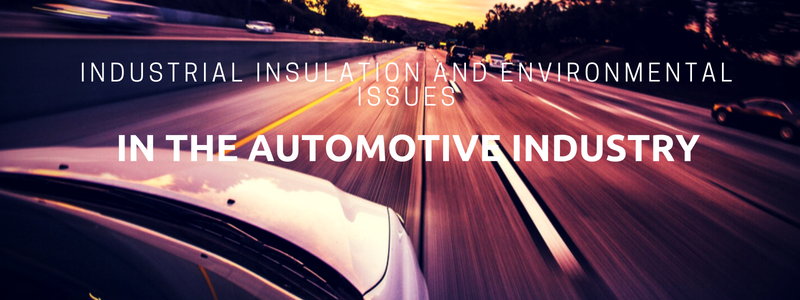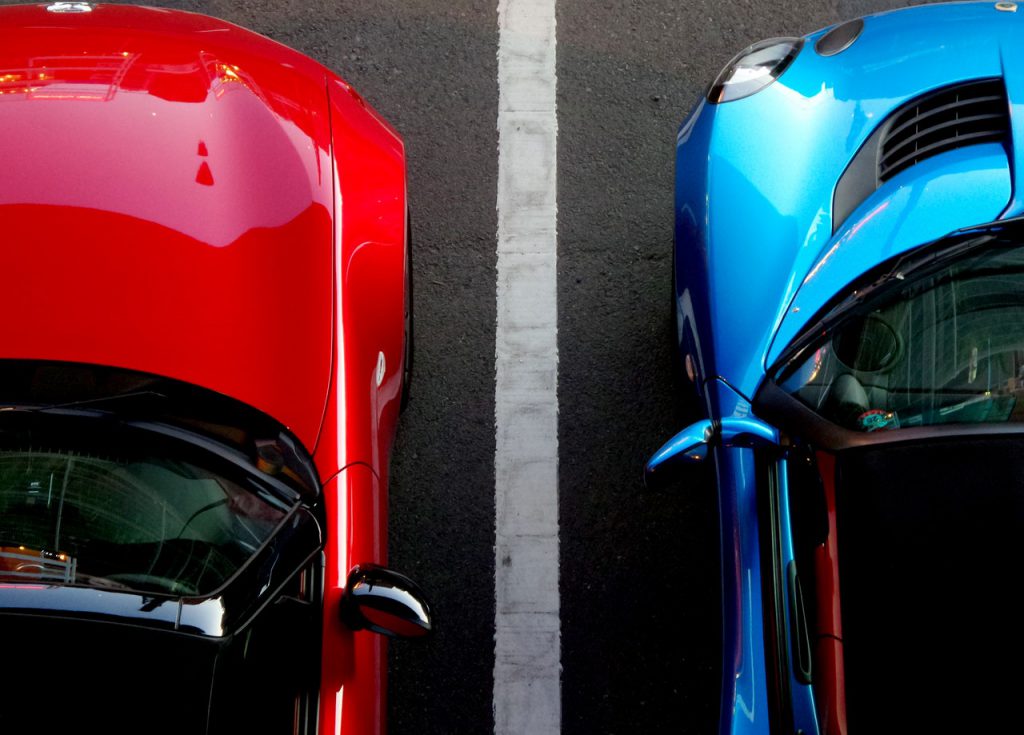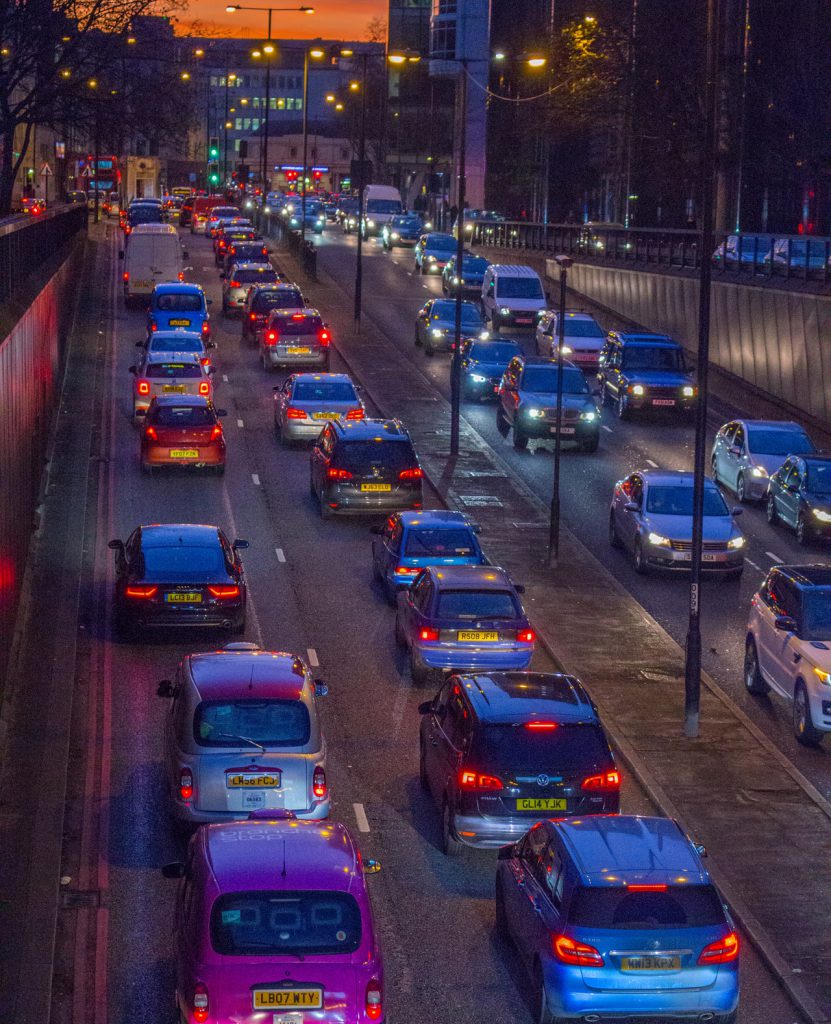
Industrial Insulation and Environmental Issues in Automotive Industries
There is no escaping the fact that there are significant environmental issues in the automotive industry, with road transport still a major cause of greenhouse gas emissions, producing around 15% of CO2 emissions in the EU. One of the ways vehicle manufacturers can help bring these emissions down is through the application of industrial insulation. Elmelin supports the automotive industry and vehicle manufacturers and, in so doing, helps environmental protection through contributing to efficiency and excellence in performance.
Increasingly, for these manufacturers, environmental factors have become the biggest challenges they face, with cost reduction no longer their chief concern. This emphasis on environmental issues in the automotive industry means more demands on innovation in vehicle manufacture, including such factors as aerodynamics and reducing vehicles’ weight, along with the move towards electrification.
However, underpinning innovation are practical applications to ensure that the ever-more sophisticated components of vehicles can perform consistently.
Tackling heat transfer and thermal management issues, for example, are basic requirements and without them, designers and manufacturers would be unable to take their concepts further.
It is only by establishing a certain level of consistency in performance that automotive technology can evolve further in helping protect the environment while serving people’s transport needs.

What Are Automotive Industry Concerns?
The automotive industry recognises that consumers are now demanding more fuel-efficient vehicles with a reduced environmental impact. At the same time, there is a recognition that alternatively-powered vehicles will have a massive impact as take-up increases alongside the spread of the infrastructure necessary to support them, including more electric vehicle charging points.
It is not just the demands of consumers which pose a challenge. Vehicle manufacturers must meet certain efficiency regulations regarding vehicles and their emissions before vehicles get into showrooms and onto forecourts.
Meeting these various demands while continuing to ensure technical excellence requires manufacturing support to help performance and protect vehicle components. For this reason, industrial insulation solutions play a key role in modern automotive industries.
EU Emissions Regulations

The European Commission is very concerned with the preservation of air quality, and consequently, it has put emissions standards in place for cars and vans (light-duty vehicles), coaches and buses (heavy-duty) and non-road mobile machinery.
EU laws set emission limits and targets for vehicles, and strict testing conditions for new vehicles to ensure they meet these targets before going on the road.
There is also an element of encouragement here, rather than just regulatory control. The EU is keen for automotive industries to forge ahead with technological developments to improve vehicle performance.
The EU is aware that the automotive industry is a major employer, providing some 12 million jobs. Therefore, it must balance the needs of environmental protection with ensuring the industry continues to be stable.
Battery Insulation to Prevent Thermal Runway
Modern vehicles must be efficient in fuel consumption to reduce their emissions, but also be both safe and reliable in non-standard and extreme conditions.
Elmelin supplies mica-based insulation solutions for vehicle batteries to help ensure vehicle performance. Mica laminates protect the housing, cells and composite tubes of vehicle batteries and reduce the risk of thermal runway.
Thermal runway is a feedback cycle that can impede a battery’s performance and damage it due to extremes of heat arising from chemical reactions in the battery. When this occurs in a battery it can be in the form of smouldering or even an actual fire with flames.
Preventing thermal runway in batteries means packing them in such a way that minimises heat retention. Mica’s excellent dielectric insulation qualities and thermal conductivity make it perfect for this.

Heat Shields for Electrical Protection
As the technology in vehicles becomes more sophisticated to improve performance and meet environmental standards, so it also becomes more sensitive, and more central to the operational capabilities of the vehicle.
We supply various industrial insulation solutions to help protect vehicle components and their electrical wiring.
Where cars experience electrical issues, this often arises from dirt getting into the wiring, creating a weak electrical connection. This can then mean the electrical components failing to work properly or shorting out. It is also critical to protect the wiring from getting too hot.
Consequently, vehicle manufacturers install special heat shields to protect this wiring and the ideal material, due to its natural insulation properties, is mica.
Industrial Insulation and Electric Vehicles
The market for electric vehicles is growing, and the infrastructure supporting them continues to develop. In April 2018, sales of electric vehicles in the UK in had increased by 11% on the previous year.
As the technology of these vehicles evolves, this shift in drive technologies will gather pace.
Industrial insulation solutions will continue to play a key role in the automotive industry, especially so with the increase in electric vehicles. If these models are to provide sustainable transport solutions, then their energy efficiency must be of a sufficiently high standard.
For example, current Tesla models in EV mode use what are essentially heating elements to heat vehicles. Effective insulation, therefore, is essential to help maintain vehicle range in extreme conditions.
Furthermore, battery systems in EVs must be able to withstand demanding environmental, chemical and mechanical requirements, but at the same time be lightweight to ensure operational efficiency of vehicles.
Mica’s lightweight durability and heat resistance will make it an ideal industrial insulation solution for the automotive industry of the future, as well as the present.
Helping Vehicle Manufacturers Support the Environment
The future of the planet and environmental issues in the automotive industry will continue to make serious demands on vehicle manufacturers. Fortunately, there is more than enough design vision and ingenuity to ensure that vehicle manufacturers can adapt to changing demands and needs.
We will continue to offer our essential support to help them meet these changes.
If you are looking for industrial insulation solutions, please call us on +44 20 8520 2248, or email sales@elmelin.com. You can also fill in our enquiry form and we’ll get back to you as soon as we can.
